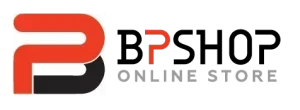Dangers of Steroid Abuse
Steroids, also known as anabolic-androgenic steroids, are synthetic substances that mimic the effects of testosterone in the body. While they have legitimate medical uses to treat certain conditions, such as delayed puberty or muscle wasting diseases, their misuse and abuse can have severe consequences on both physical and mental health.
The allure of achieving a muscular and chiseled physique, enhanced athletic performance, and rapid muscle growth has led many individuals, including athletes, bodybuilders, and even recreational gym-goers, to turn to steroids as a shortcut. However, the dangers associated with steroid abuse are numerous and should not be taken lightly.
One of the major risks of steroid abuse is the disruption of hormonal balance in the body. Steroids work by increasing testosterone levels, which can lead to an imbalance in other hormones, such as estrogen. This hormonal imbalance can result in various side effects, including acne, hair loss, and the development of breast tissue in men, a condition known as gynecomastia.
Moreover, the misuse of steroids can have detrimental effects on vital organs, such as the liver and kidneys. Steroids are typically taken orally or injected, and their prolonged use can put excessive strain on these organs, leading to liver damage, kidney failure, and other serious health complications.
Psychological effects are also a significant concern when it comes to steroid abuse. Users may experience mood swings, aggressive behavior, and even psychiatric disorders like depression and anxiety. These psychological changes can strain relationships, impair judgment, and negatively impact overall quality of life.
Additionally, the misuse of steroids can have adverse cardiovascular effects. Steroids can increase LDL cholesterol levels, decrease HDL cholesterol levels, and elevate blood pressure. These factors significantly increase the risk of heart disease, stroke, and other cardiovascular problems.
It is crucial to recognize that the dangers of steroid abuse extend beyond physical health. The use of steroids without proper medical supervision is not only illegal but can also lead to legal consequences, tarnished reputations, and a lifetime ban from sports competitions.
In conclusion, the allure of achieving physical prowess through steroid abuse comes with severe risks. From hormonal imbalances and organ damage to psychological disturbances and legal ramifications, the dangers associated with steroid abuse are far-reaching. It is essential to prioritize health, well-being, and ethical practices in pursuit of fitness and athletic goals, rather than resorting to shortcuts that can have long-lasting negative effects.
The Hidden Dangers of Steroid Abuse
While the desire for physical enhancement and improved performance is understandable, the use and abuse of anabolic steroids pose significant risks that extend far beyond the desired outcomes. Let us delve into the various dangers associated with steroid abuse.
Hormonal Imbalances and Physical Side Effects
One of the most immediate dangers of steroid abuse is the disruption of hormonal balance in the body. By artificially increasing testosterone levels, steroids can lead to an overabundance of this hormone while suppressing the production of others. This hormonal imbalance can result in a range of physical side effects.
Acne is a common side effect of steroid abuse. The excess testosterone can stimulate the sebaceous glands, leading to increased oil production and clogged pores. Severe acne outbreaks can not only be unsightly but also cause pain and leave permanent scarring.
Another physical side effect is hair loss. Steroids can accelerate the process of male pattern baldness, even in individuals who are not genetically predisposed to it. This can be distressing and have long-lasting effects on self-esteem and body image.
Furthermore, the misuse of steroids can lead to the development of breast tissue in men, a condition known as gynecomastia. The excess testosterone can be converted into estrogen, leading to the enlargement of mammary glands. This can cause discomfort, embarrassment, and may even require surgical intervention to correct.
Organ Damage and Health Complications
The misuse of steroids can have severe consequences on vital organs, particularly the liver and kidneys. Steroids are typically taken orally or injected, and their prolonged use can put excessive strain on these organs.
Oral steroids, specifically those that are alkylated (17-alpha-alkylated), can be particularly hepatotoxic. They can cause liver damage, including liver tumors, hepatitis, and jaundice. In severe cases, liver failure may occur, necessitating a liver transplant or leading to death.
Similarly, the kidneys can also suffer from the abuse of steroids. The increased workload on the kidneys, coupled with the potential for high blood pressure, can lead to kidney damage and even kidney failure. This can have long-term implications for overall health and well-being.
Psychological and Behavioral Changes
The dangers of steroid abuse extend beyond physical health and can significantly impact mental well-being. Steroid users may experience mood swings, irritability, and aggressive behavior, commonly referred to as “roid rage.” These psychological changes can strain relationships, affect work or academic performance, and lead to social isolation.
Furthermore, the misuse of steroids has been associated with psychiatric disorders such as depression and anxiety. The hormonal imbalances caused by steroids can disrupt neurotransmitter levels in the brain, contributing to mood disorders and exacerbating existing mental health conditions.
Cardiovascular Risks
Another significant danger of steroid abuse is the adverse impact on cardiovascular health. Steroids can have detrimental effects on cholesterol levels and blood pressure, increasing the risk of heart disease, stroke, and other cardiovascular problems.
Steroids can decrease levels of high-density lipoprotein (HDL) cholesterol, commonly referred to as “good cholesterol,” while increasing levels of low-density lipoprotein (LDL) cholesterol, known as “bad cholesterol.” This imbalance can lead to the buildup of plaque in the arteries, increasing the risk of heart attacks and strokes.
Moreover, the use of steroids can elevate blood pressure, putting additional strain on the cardiovascular system. High blood pressure can lead to heart failure, heart attacks, and other life-threatening conditions.
Conclusion
The allure of achieving physical prowess through steroid abuse comes with severe risks that should not be underestimated. From hormonal imbalances and physical side effects to organ damage, psychological disturbances, and cardiovascular complications, the dangers associated with steroid abuse are far-reaching.
It is essential to prioritize health, well-being, and ethical practices in pursuit of fitness and athletic goals. Education, awareness, and access to proper guidance are crucial in preventing and addressing steroid abuse. By promoting a culture of informed decision-making and responsible training, we can protect individuals from the detrimental effects of steroid misuse and promote long-term health and wellness.
Practical Recommendations to Prevent Steroid Abuse
Educate and Raise Awareness
Education is key to preventing steroid abuse. Schools, sports organizations, and healthcare professionals should provide comprehensive information about the risks and consequences of steroid misuse. Emphasize the importance of natural and healthy approaches to fitness and performance enhancement.
Additionally, campaigns and public awareness programs should be launched to educate the general public about the dangers of steroid abuse. Utilize various platforms, including social media, to reach a wider audience and dispel the myths surrounding steroids.
Promote Ethical Training and Competition
Encourage athletes, coaches, and sports organizations to prioritize fair play and ethical training methods. Emphasize the importance of hard work, dedication, and proper nutrition in achieving athletic goals. Foster a culture that celebrates natural talent and discourages the use of performance-enhancing substances.
Implement stringent drug-testing protocols in sports competitions to deter athletes from using steroids. Ensure that testing procedures are thorough, transparent, and conducted by accredited organizations to maintain the integrity of the sport.
Enhance Access to Support and Guidance
Establish support systems for individuals struggling with body image issues, performance pressures, or the temptation to use steroids. Offer counseling services, helplines, and online resources to provide guidance and support to those in need.
Moreover, healthcare professionals should be trained to identify the signs of steroid abuse and provide appropriate interventions. Foster collaborations between sports medicine specialists, psychologists, and addiction specialists to develop comprehensive treatment plans for individuals affected by steroid misuse.
Regulate the Sale and Distribution of Steroids
Enforce strict regulations on the sale and distribution of anabolic steroids. Increase penalties for illegal production, trafficking, and sale of these substances. Collaborate with law enforcement agencies to crack down on the black market and online platforms that facilitate the illegal trade of steroids.
Furthermore, healthcare professionals should adhere to ethical guidelines and only prescribe steroids for legitimate medical purposes. Implement monitoring systems to track prescriptions and identify any suspicious patterns of use.
Encourage Natural and Healthy Approaches
Promote the benefits of natural and healthy approaches to fitness and performance enhancement. Encourage individuals to focus on proper nutrition, regular exercise, and adequate rest to achieve their goals safely and sustainably.
Highlight success stories of athletes who have achieved remarkable feats through natural training methods, inspiring others to follow suit. Provide resources and guidance on effective training techniques, nutrition plans, and recovery strategies to help individuals reach their full potential without resorting to steroids.
Continued Research and Monitoring
Invest in research to better understand the long-term effects of steroid abuse and develop more effective prevention and treatment strategies. Stay updated on the latest advancements in the field and adapt strategies accordingly.
Regularly monitor trends and patterns of steroid abuse to identify emerging challenges and develop targeted interventions. Collaborate with researchers, healthcare professionals, and sports organizations to gather data and implement evidence-based practices.
By implementing these practical recommendations, we can work towards preventing steroid abuse, protecting individuals from the dangers associated with misuse, and promoting a culture of health, fairness, and ethical practices in sports and fitness.





